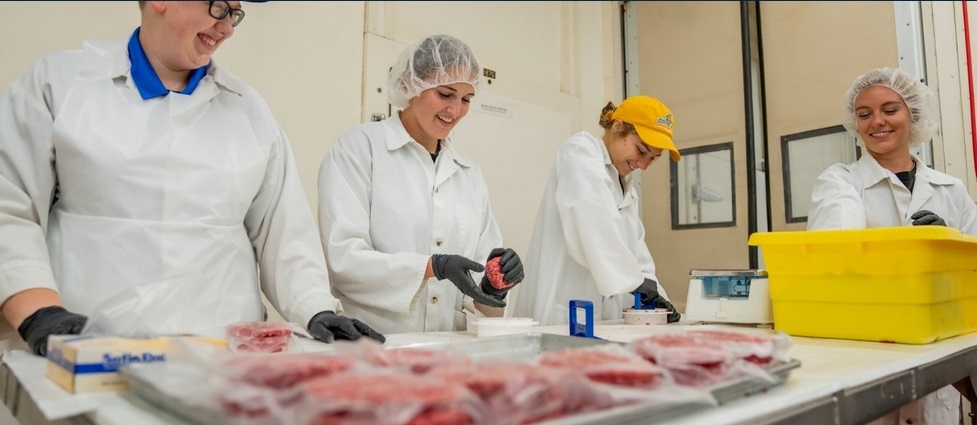| |
Feb 14, 2026
|
|
|
|
|
2023-2024 Undergraduate Catalog [Archived Catalog]
Meat Science Minor
|
|

 

Program Coordinator/Contact
Judson “Kyle” Grubbs, Assistant Professor
Department of Animal Sciences
Animal Science Complex 116
605-688-5451
Program Information
The Meat Science minor is designed for students seeking careers associated with the meat and food industry including research and product development, quality assurance, food safety, fresh meat processing, meat product manufacturing, and government service. Students learn product characteristics, product development, production, food safety, and marketing of fresh and processed meats. Completion provides excellent preparation for a career in the meat and food industry, and also provides an excellent background for graduate study in either meat or food science.
Course Delivery Format
Program faculty will engage students in a variety of academic and experiential learning experiences, including numerous activities in the SDSU Meats Laboratory.
|
Student Learning Outcomes
Students completing a Meat Science minor will: - describe the various aspects of the meat and livestock industries and how they interrelate and function, including knowledge of how pre-harvest factors impact food safety and product quality;
- understand the global role of meat products in human health and nutrition and livestock production, and contribute to problem-solving food demands in the 21st century;
- apply knowledge of the basic physical and chemical components of meat and their influence on specific attributes of meat and meat products to development of new and improvement of existing meat products;
- describe the scientific and technological procedures involved in the processing of meat animals and preservation of meat products;
- describe the food safety issues as related to the meat industry, and apply the principles of Hazard Analysis Critical Control Points; and
- recognize the role of today’s consumer in the meat and livestock industries.
Requirements for Meat Science Minor: 18 Credits
Electives
Select from the following. Credits: 6-8 Total Required Credits: 18
|
|
|